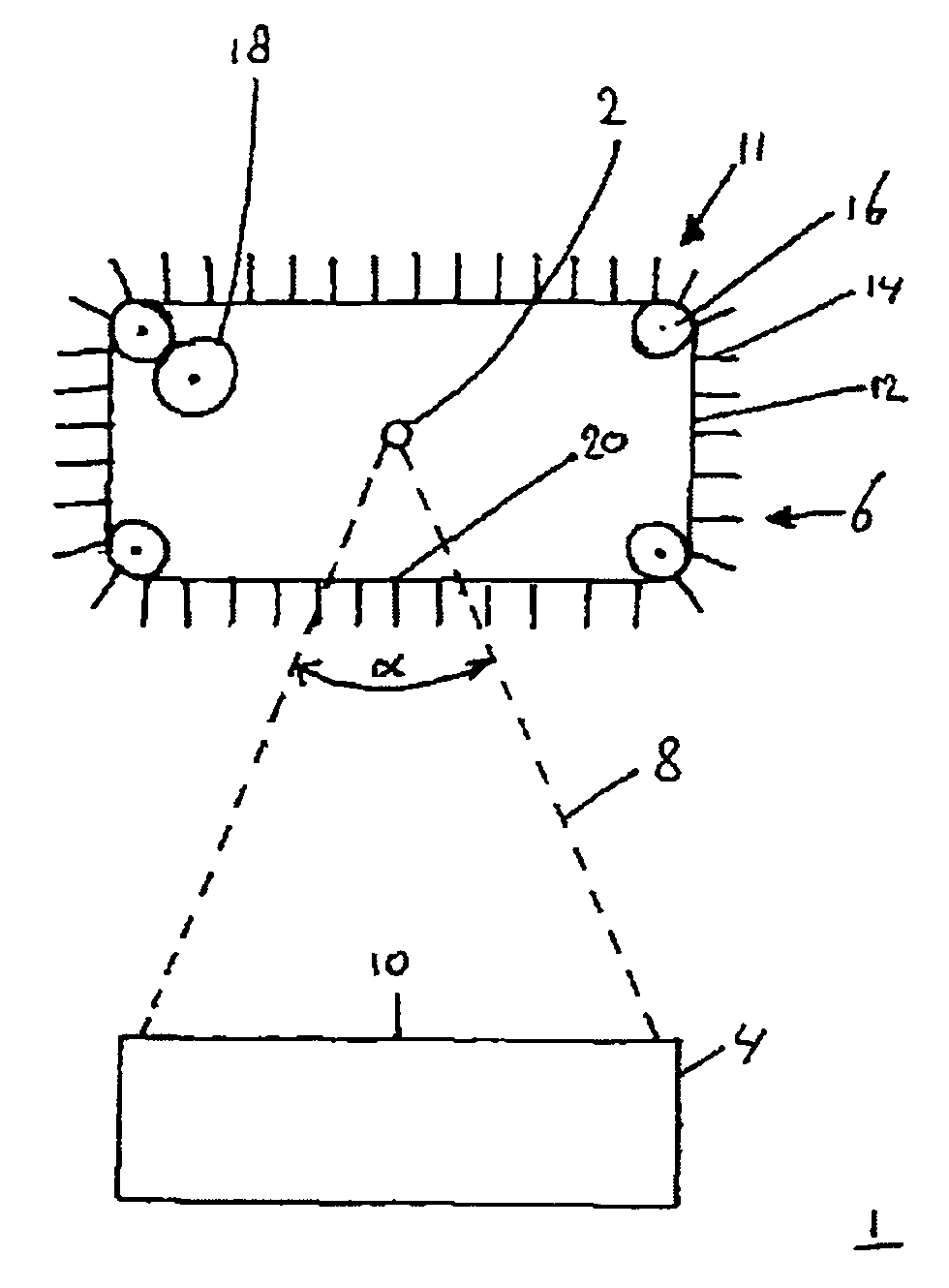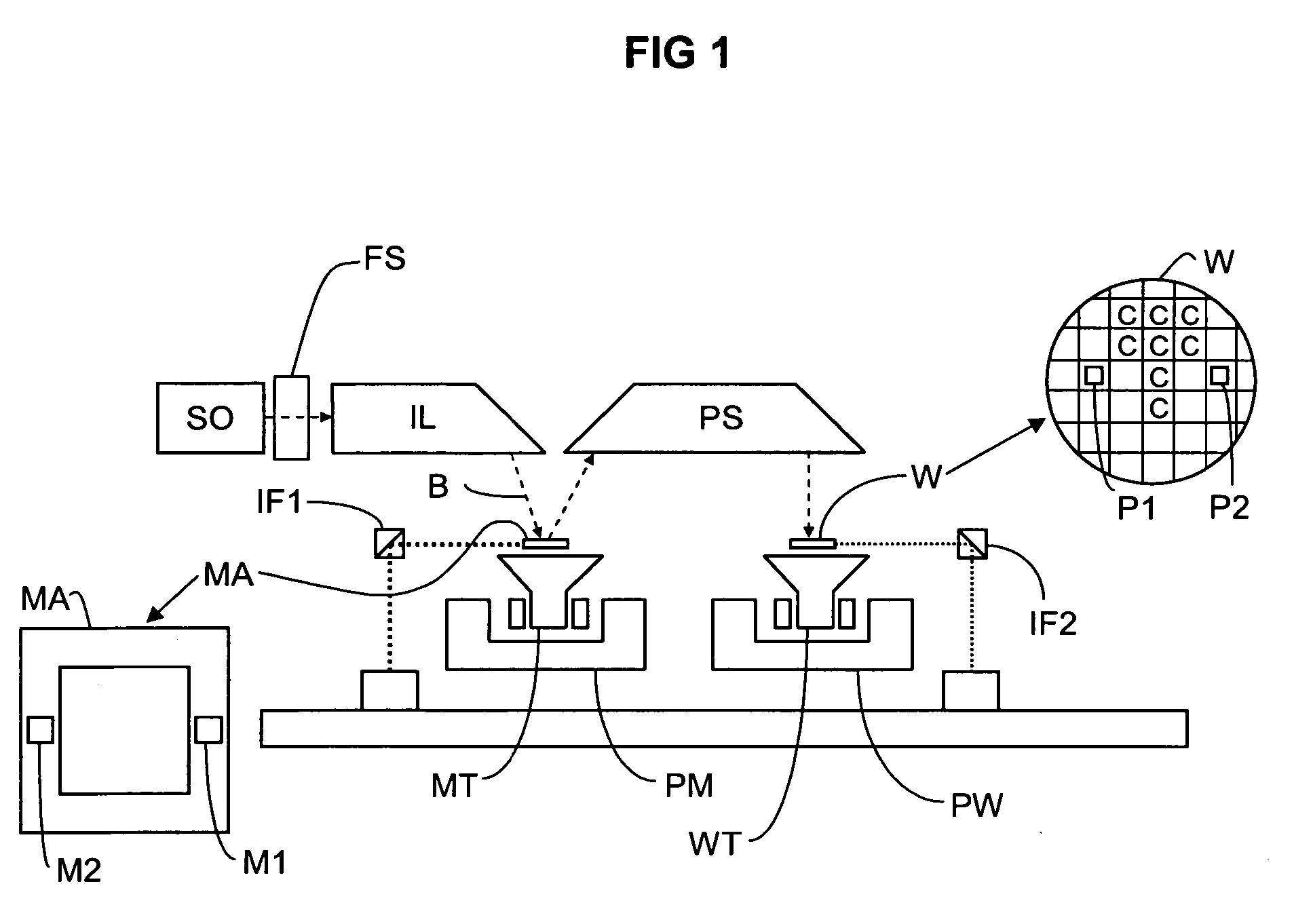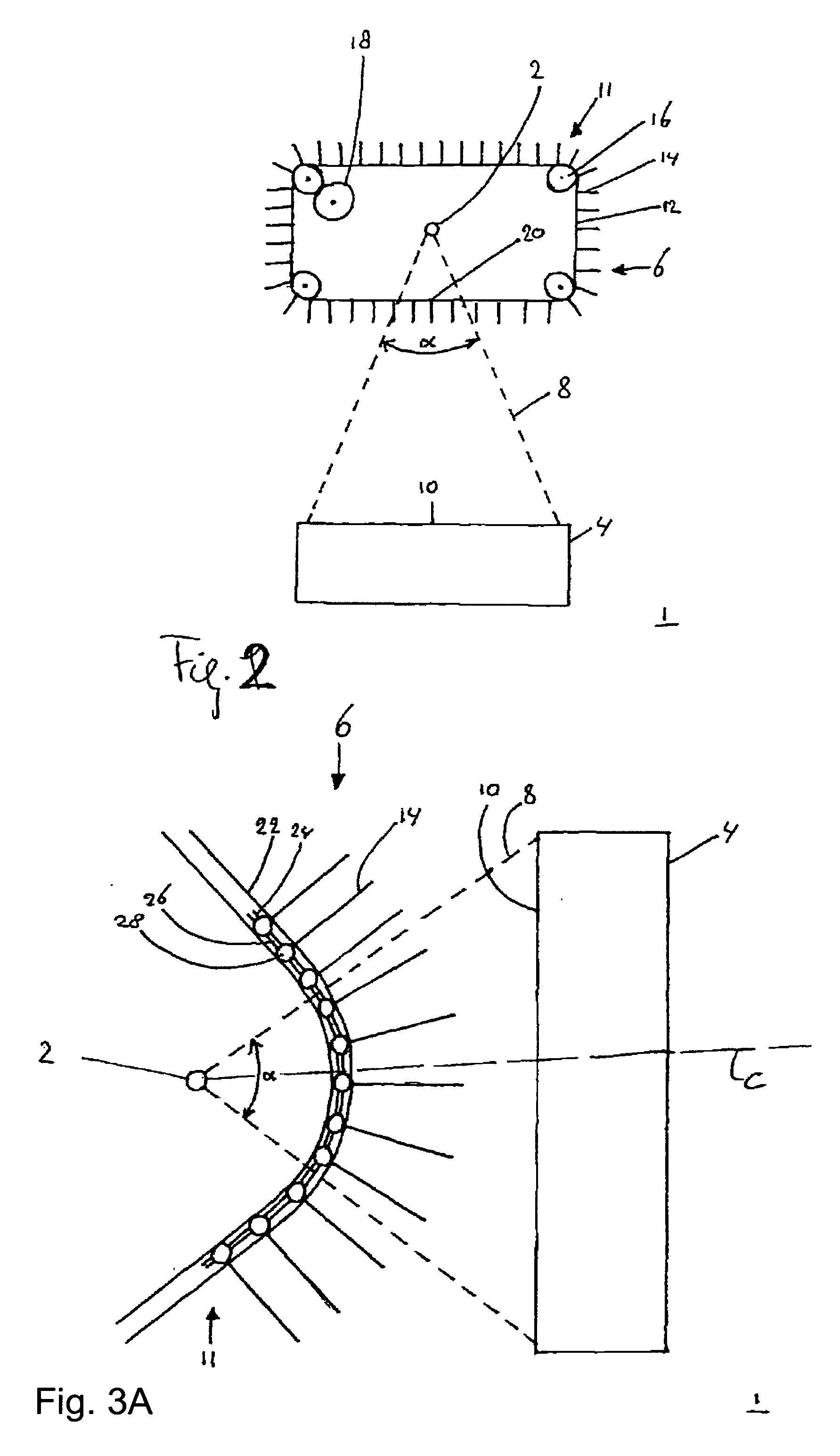Apparatus including a radiation source, a filter system for filtering particles out of radiation emitted by the source, and a processing system for processing the radiation, a lithographic apparatus including such an apparatus, and a method of filtering particles o
a technology of filter system and radiation source, which is applied in the direction of x-ray tubes with very high current, electrodes and associated parts, etc., can solve the problems of reducing radiation transferring efficiency, difficult placement of debris removal system, and euv radiation, and achieves the effect of easy adaptation
- Summary
- Abstract
- Description
- Claims
- Application Information
AI Technical Summary
Benefits of technology
Problems solved by technology
Method used
Image
Examples
first embodiment
[0041]FIG. 2 shows an apparatus 1. The apparatus 1 includes a radiation source 2, a processing system 4, e.g. an illuminator IL, configured to process the radiation from the radiation source, and a filter system 6. The radiation source 2 may be a plasma radiation source, e.g. a Sn-source or a Xe-source. In the example of FIG. 2, the filter system 6 includes a transporter 11, which in this example includes a transport member 12, for example a conveyor belt, with a plurality of foils or plates 14, and a plurality of guides 16, for example wheels. In this example the conveyor belt 12 is configured as an endless loop. The wheels 16 are arranged to guide the conveyor belt 12. In this example the foils 14 are arranged orthogonal to the conveyor belt 12 and are spaced equidistantly with respect to each other. In the example of FIG. 2, the filter system further includes a drive unit 18. In this example the drive unit 18 is connected to a single wheel 16. The drive unit 18 drives conveyor be...
second embodiment
[0047]FIGS. 3a, 3b and 3c show the apparatus 1. FIG. 3a shows a schematic top view of an embodiment of the apparatus 1. FIG. 3b shows a schematic perspective view of a detail of the apparatus shown in FIG. 3a. FIG. 3c shows a schematic section of the apparatus shown in FIG. 3a along line C. Referring to FIG. 3a, the radiation source 2 generates radiation and debris particles, which, in this embodiment, are emitted radially away from the source 2. The radiation 8 propagating through the predetermined cross section 10, e.g. through the entrance opening of the processing system 4, has an opening angle α. In the embodiment of FIG. 3a each foil 14 substantially extends in a virtual plane that intersects the radiation source 2, at least within the radiation 8 through the predetermined cross section 10. The radiation 8 is parallel to the foils 14 within the radiation 8. In this way the foils 14 intercept a minimum amount of radiation from the radiation source 2. In the embodiment of FIG. 3...
third embodiment
[0052]FIGS. 4a and 4b show a schematic view of a third embodiment the apparatus 1. FIG. 4a shows the filter system 6 viewed from the location of the processing system. FIG. 4b shows the apparatus 1 as viewed in the direction of arrow P in FIG. 4a. In the embodiment of FIGS. 4a and 4b, the transporter 11 is configured to transport the foils or plates 14 on one side of a plane through the source 2 normal to the optical axis, which optical axis extends from the source 2 to the processing system 4. Thus, the transporter 11 can be arranged in front of the source 2, when viewed from the processing system 4, and need not be wrapped around the source. The positioning and mechanical layout of both the filter system 6 and the source 2 can thus be less constrained than with the transporter 11 wrapped around the source 2, or with rotating foils. In the embodiment of FIGS. 4a and 4b, the foils 14 are transported along the trajectory, which trajectory, within the radiation 8, substantially follow...
PUM
| Property | Measurement | Unit |
|---|---|---|
| wavelength | aaaaa | aaaaa |
| opening angle | aaaaa | aaaaa |
| wavelength | aaaaa | aaaaa |
Abstract
Description
Claims
Application Information
 Login to View More
Login to View More - R&D
- Intellectual Property
- Life Sciences
- Materials
- Tech Scout
- Unparalleled Data Quality
- Higher Quality Content
- 60% Fewer Hallucinations
Browse by: Latest US Patents, China's latest patents, Technical Efficacy Thesaurus, Application Domain, Technology Topic, Popular Technical Reports.
© 2025 PatSnap. All rights reserved.Legal|Privacy policy|Modern Slavery Act Transparency Statement|Sitemap|About US| Contact US: help@patsnap.com



